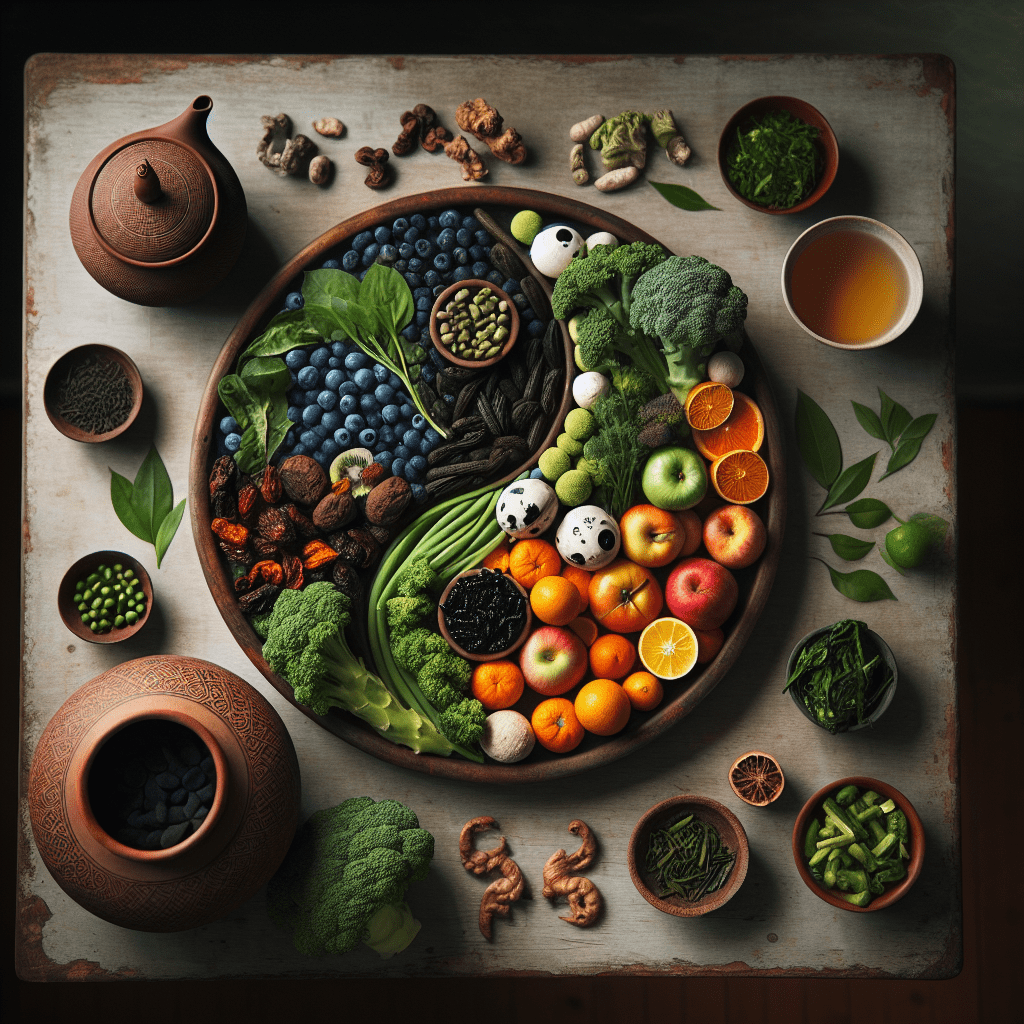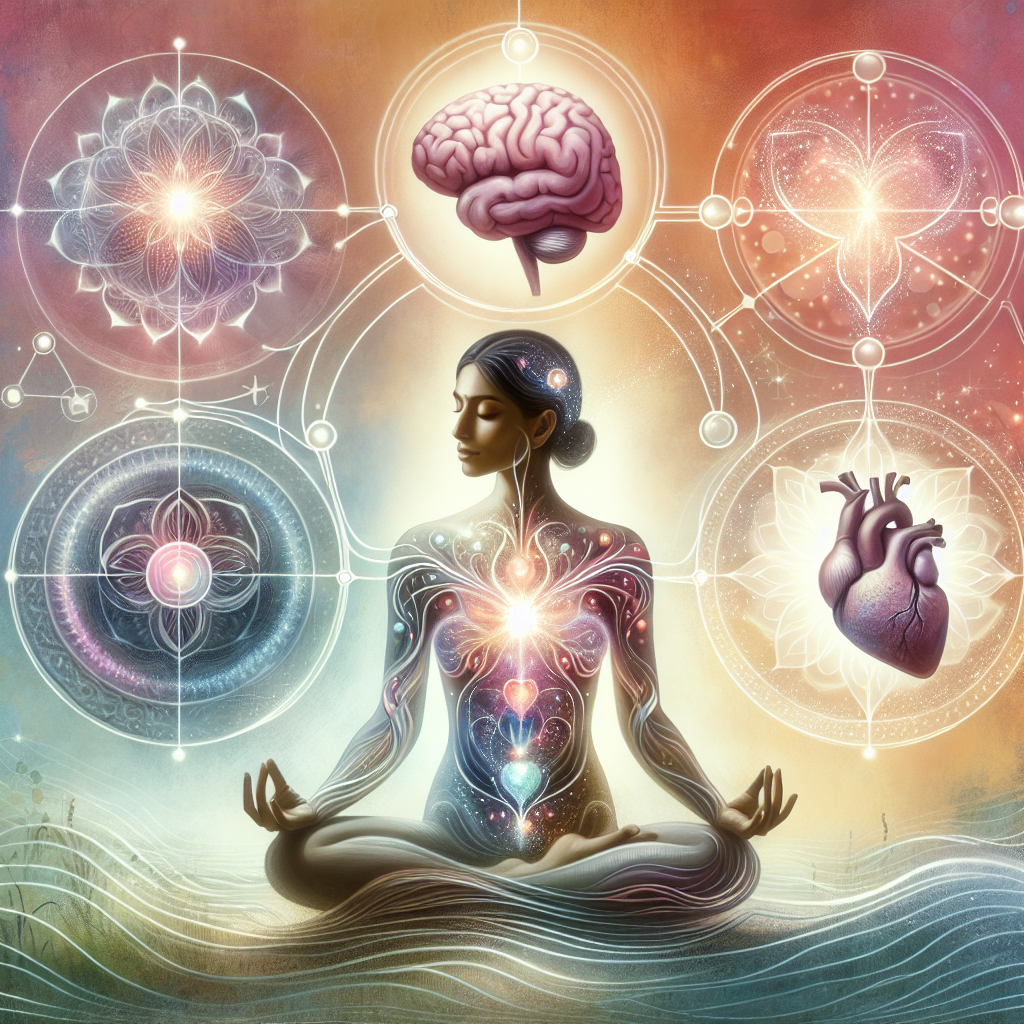Have you ever followed a diet plan to the letter, only to feel worse instead of better? Or noticed how your friend thrives on a regimen that leaves you feeling drained? If so, you’ve stumbled upon a truth that Eastern healing traditions have understood for thousands of years: nutrition isn’t one-size-fits-all. This is where Eastern food energetics comes in.
As a nutrition wellness coach looking to truly transform your clients’ health, understanding Eastern food energetics could be the missing piece in your practice. This ancient approach to nutrition goes beyond calories and macros to consider how foods energetically interact with our unique bodies.
The Holistic Perspective: More Than Just Nutrients
Eastern food energetics offers something fundamentally different from conventional Western nutritional approaches. Rather than viewing food solely through the lens of vitamins, minerals, and macronutrients, it considers how each food affects our physical, emotional, and spiritual wellbeing.
In Traditional Chinese Medicine (TCM) and other Eastern healing systems, food is seen as medicine—a daily opportunity to create balance and harmony within the body. This perspective transforms eating from a mundane activity into a powerful healing practice.
“When we adopt Eastern food energetics into our nutrition wellness coaching, we’re able to address the whole person—not just their physical symptoms,” explains Dr. Mei Lin, a TCM practitioner and nutritionist. “This holistic approach allows us to create truly personalized nutrition plans that work with each person’s unique constitution.”
What makes this approach especially valuable for nutrition wellness coaches is its ability to explain why standard dietary advice fails so many people. When we understand the energetic properties of food, we can make recommendations that align with each individual’s needs, creating sustainable health transformations. It’s time to discover the missing puzzle piece in your nutrition practice.
Understanding Food Energetics: The Building Blocks of Eastern Nutrition
“Food is not just calories – it’s information. Eastern food energetics gives us a language to understand how different foods communicate with our bodies.” – Dr. Lily Chang, Integrative Nutrition Expert
At the heart of Eastern food energetics lies a sophisticated system of classifying foods based on their inherent properties and effects on the body. These properties include:
Thermal Nature: Foods are categorized as warming, cooling, neutral, or hot/cold. This doesn’t necessarily refer to the physical temperature but rather to how they affect your body’s internal temperature.
For instance, ginger, cinnamon, and lamb are considered warming foods that can increase circulation and metabolism. They’re particularly beneficial for people who feel cold easily or have sluggish digestion. Conversely, watermelon, cucumber, and mint are cooling foods that can reduce inflammation and heat in the body—perfect for those who run hot or experience frequent thirst.
Five Flavors: In TCM, foods are classified into five flavor categories—sweet, sour, bitter, salty, and pungent (spicy)—each affecting different organ systems and bodily functions.
Sweet foods like rice and sweet potatoes nourish the spleen and stomach energy, providing sustained energy. Bitter foods such as kale and dandelion greens support the heart and small intestine while clearing heat. Understanding these relationships allows a nutrition wellness coach to target specific organ systems through dietary recommendations.
Yin and Yang Balance: Perhaps the most fundamental concept in Eastern food energetics is the balance of yin and yang energies. Yin foods are generally cooling, moistening, and calming, while yang foods are warming, drying, and energizing. This balance is essential for optimal health.
“The goal isn’t to eliminate either yin or yang foods,” says nutrition wellness coach Sara Chen. “Instead, we aim to create balance based on each person’s constitution and current health needs. Someone with a naturally hot constitution might need more yin foods, while someone who tends to feel cold and lethargic might benefit from more yang foods.”
These principles create a framework that allows nutrition wellness coaches to understand how different foods affect different people. It explains why raw salads might leave one person feeling refreshed and another feeling bloated and cold, or why warm stews nourish some people while making others feel sluggish.
Seasonal Eating and Preventative Care: The Path to Harmony
Eastern nutrition places strong emphasis on eating according to the seasons—a practice that nutrition wellness coaches are increasingly recognizing as vital for long-term health.
“Nature provides exactly what our bodies need in each season,” explains nutrition wellness coach Michael Wong. “In winter, root vegetables and warming foods help us conserve energy and stay warm. In summer, cooling fruits and vegetables help us release heat and stay hydrated.”
This seasonal approach isn’t just about using fresh, local produce (though that’s certainly a benefit). It’s about aligning our bodies with the natural rhythms of the earth. By eating seasonally, we prevent imbalances that could lead to illness down the road.
For example, consuming too many cold, raw foods in winter can deplete our digestive fire and lead to poor nutrient absorption. Conversely, eating too many heavy, warming foods in summer can contribute to inflammation and sluggishness.
Eastern food energetics also emphasizes preventative care—addressing small imbalances before they become major health problems. A skilled nutrition wellness coach trained in these principles can spot subtle signs of imbalance in digestion, energy levels, or emotional wellbeing, and make dietary adjustments to restore harmony.
This preventative approach stands in stark contrast to the Western model of waiting until disease manifests before intervening. By making small, consistent dietary changes based on Eastern food energetics, nutrition wellness coaches can help clients maintain optimal health rather than simply treating problems after they arise. The power of prevention lies at the heart of Eastern wisdom.
Mindful Eating: Deepening the Connection with Food and Body
“The way you eat is as important as what you eat. Mindfulness transforms mere consumption into nourishment.” – Traditional Chinese Proverb
Eastern food energetics naturally encourages mindfulness around eating—another valuable tool for nutrition wellness coaches. In Eastern traditions, how we eat is just as important as what we eat.
“When we eat mindfully, we’re more likely to choose foods that truly nourish us, eat appropriate portions, and digest properly,” says nutrition coach Lisa Tanaka. “This alone can resolve many common digestive issues and food cravings.”
Mindful eating practices from Eastern traditions include:
- Taking time to appreciate the appearance, aroma, and flavors of food
- Chewing thoroughly to aid digestion and nutrient absorption
- Eating in a calm environment without distractions
- Listening to the body’s hunger and fullness cues
- Expressing gratitude for the food and those who prepared it
By incorporating these practices into their coaching, nutrition wellness coaches can help clients develop a healthier relationship with food. Rather than viewing eating as a rushed necessity or source of guilt, clients learn to see meals as opportunities for nourishment and self-care.
Eastern traditions also recognize that food is just one aspect of overall wellness. A truly holistic nutrition wellness coach might integrate complementary practices like meditation, acupressure, or gentle movement to support their clients’ dietary changes.
“When I began incorporating breathing exercises and simple acupressure points into my nutrition coaching, I saw my clients’ results improve dramatically,” shares nutrition wellness coach David Lee. “These practices help reduce stress, which in turn improves digestion and makes it easier to implement dietary changes.”
Community Support and Modern Applications: Bringing Ancient Wisdom to Today’s World
Eastern wellness approaches have always recognized the importance of community in maintaining healthy habits. In many Eastern cultures, meals are communal affairs, with families and communities coming together to prepare and enjoy food.
This community aspect provides accountability, support, and joy—elements that nutrition wellness coaches know are essential for long-term adherence to healthy eating patterns. By fostering community among their clients through group programs, cooking classes, or online forums, coaches can recreate this supportive environment.
“My clients who participate in our community programs are far more likely to sustain their dietary changes than those who try to go it alone,” notes nutrition wellness coach Jennifer Wu. “There’s something powerful about sharing both the challenges and the successes of changing your relationship with food.”
While Eastern food energetics is rooted in ancient wisdom, innovative tools are making these concepts more accessible and applicable to modern life. HerbalsZen’s EASTCHI AI represents this integration of traditional knowledge with cutting-edge technology. This sophisticated system combines 2,000-year-old Eastern medical theories with artificial intelligence to provide truly personalized nutrition guidance.
EASTCHI AI analyzes individual constitutional types through Five Element Theory, offers seasonal dietary recommendations, and embodies the Eastern concept of “food as medicine.” For nutrition wellness coaches looking to incorporate Eastern food energetics into their practice, such tools can provide valuable support and insights.
“What excites me about EASTCHI AI is how it makes these complex Eastern principles accessible to everyone,” says nutrition wellness coach Emma Chen. “The technology helps identify patterns and imbalances that might take years of study to recognize, while still honoring the depth and wisdom of Eastern healing traditions.”
By embracing Eastern food energetics, nutrition wellness coaches can offer their clients a more personalized, holistic approach to health. This ancient wisdom, especially when combined with modern understanding of nutrition, creates a powerful framework for addressing the root causes of health issues rather than just managing symptoms.
For those seeking to expand their practice beyond conventional nutrition advice, Eastern food energetics offers a rich, nuanced perspective that could be the missing puzzle piece in truly transformative health coaching. After all, true wellness isn’t just about eating the “right” foods—it’s about eating the right foods for you, in the right way, at the right time.
And that’s a wisdom that Eastern healing traditions have understood for thousands of years.
Ready to transform your nutrition coaching with Eastern food energetics?
Discover how ancient wisdom combined with modern nutritional science can provide your clients with truly personalized wellness plans. Explore traditional principles that explain why one-size-fits-all diets often fail and how you can create sustainable health transformations.



